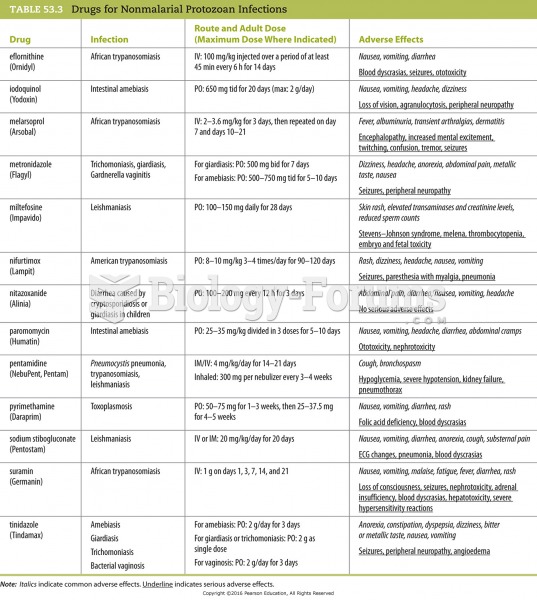Answer to Question 1
2,3
Rationale 1: Beta1 agonists are most likely to be given to patients with heart failure.
Rationale 2: Beta2 agonists are useful in the treatment of asthma.
Rationale 3: Beta2 agonists are useful in the treatment of COPD.
Rationale 4: Beta3 agonists are most likely to be given to patients with overactive bladder.
Rationale 5: Alpha1 agonists are most likely to be given to patients with nasal congestion.
Global Rationale: Beta2 agonists are useful in the treatment of asthma and COPD. Beta1 agonists are most likely to be given to patients with heart failure. Beta2 agonists are useful in the treatment of asthma. Alpha1 agonists are most likely to be given to patients with nasal congestion.
Answer to Question 2
2,4,5
Rationale 1: 5 dextrose in lactated Ringer's is a hypertonic solution and is not appropriate for the treatment of fluid loss due to a surgical procedure.
Rationale 2: 0.9 sodium chloride (NS) is an isotonic solution and is appropriate for the treatment of fluid loss due to a surgical procedure.
Rationale 3: 0.45 sodium chloride is a hypotonic solution and is not appropriate in the treatment of fluid loss due to a surgical procedure.
Rationale 4: Lactated Ringer's is an isotonic solution that is appropriate to treat fluid loss caused by a surgical procedure.
Rationale 5: 5 dextrose in water is an isotonic solution that is appropriate to treat fluid loss caused by a surgical procedure.
Global Rationale: 0.9 sodium chloride (NS) is an isotonic solution and is appropriate for the treatment of fluid loss due to a surgical procedure. Lactated Ringer's is an isotonic solution that is appropriate to treat fluid loss caused by a surgical procedure. 5 dextrose in water is an isotonic solution that is appropriate to treat fluid loss caused by a surgical procedure. 5 dextrose in lactated Ringer's is a hypertonic solution and is not appropriate for the treatment of fluid loss due to a surgical procedure. 0.45 sodium chloride is a hypotonic solution and is not appropriate in the treatment of fluid loss due to a surgical procedure.







